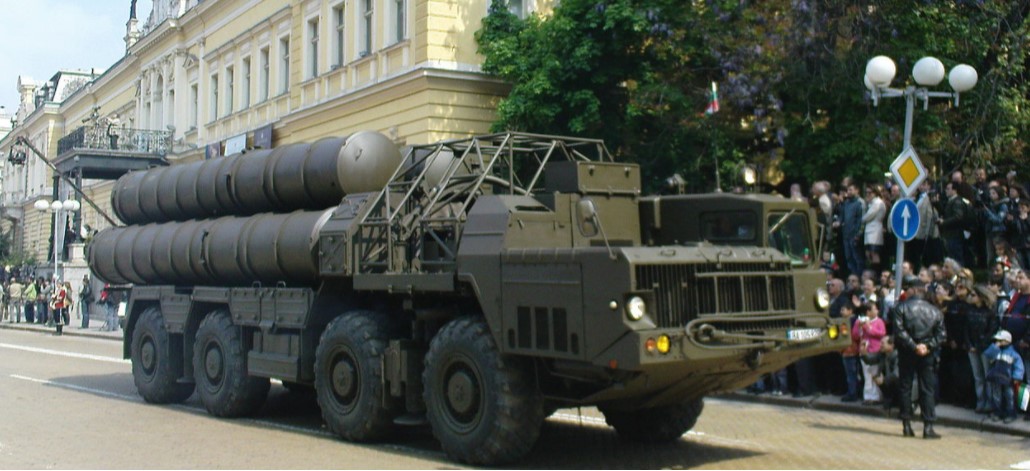According to the publication, in the Mediterranean part of the Bosporus Strait, a Russian cargo ship Sparta II, was spotted which, allegedly, carried “military cargo” for Oboronlogistics.
In the Syrian port of Tartous there is a logistics center for the Russian Navy. “Oboronlogistics” is a transport and logistics operator that provides for the transport needs of the Ministry of Defense of the Russian Federation.
According to other sources, several cargo ships have already entered the Syrian port of Tartous. The ships were loaded in Novorossiysk. The S-300 [NATO reporting name SA-10 Grumble] is a series of initially Soviet and later Russian long range surface-to-air missile systems.
Nothing is known about the cargo. However, it is alleged that the unloading of vessels is carried out in an environment of increased secrecy: when carrying out work, a smoke screen is used.
Also, according to media reports, precautions has been in place around the port, including a “gaseous substance” designed to interfere with the tracking systems of satellites and unmanned vehicles. This heightened security suggests that the anti-aircraft missile systems (SAMs) S-300 and other weapons are being delivered.
Several Russian cargo ships arrived to #Tartus. According to reports, unloading takes place under the cover of a smoke screen and aerosol gas, designed to block the view from satellites and drones. S-300? pic.twitter.com/6un1n13UUa
— Syria frontlines (@SyriaWarReports) April 20, 2018
The supplies may be related to the recent missile attack by the United States, Britain and France on Syria, in response to which Russia did not rule out the strengthening of the Arab air defense system by the new systems.
Reuters reported that Russian Foreign Minister Sergei Lavrov said on Friday, according to RIA state news agency, that Russia no longer felt moral obligations to withhold such systems.
“We used to have moral obligations, we promised not to do that some 10 years ago, as far as I remember, at the request of our known partners, and we took their argument into account, that it would lead to destabilization, although [these air defense systems are] purely defensive. We nevertheless heeded their requests, but we don’t have this moral obligation now.”
As reported by FWM, a missile attack on Syria was inflicted on the night of April 14. In total, the United States, Great Britain and France launched 103 rockets at Damascus and Homs provinces, of which, according to estimates of the General Staff of the Russian Armed Forces, 71 were shot down.
Tomahawk and air-to-ground cruise missiles were intercepted by means of Syrian air defense systems – Soviet complexes S-125, S-200, Buk, Osa and Kvadrat. Later, the Ministry of Defense of the Russian Federation, clarified that anti-aircraft missile and cannon complexes (ZRPK) “Pantsir-S1” were used to repel the missile attack. In turn, the Pentagon claims that all the missiles of the Western coalition have reached their targets in the regions of Damascus and Homs.
On April 14, Chief of the Main Operations Directorate of the General Staff of the RF Armed Forces, Colonel-General Sergei Rudskoy stated that the Russian side could return to discussing the supplies of the S-300 SAM to Syria.
According to him, several years ago the decision of this issue was stopped “at the insistence of Western countries”. Now the complexes can be delivered not only to Syria, but also to some other countries in the region, Rudskoy said.
Earlier it became known that two large amphibious assault ships (BDK) of the Russian Navy left for Syria. The Turkish blog Yörük Işık, tracking the movement of warships, on April 15 reported the entry of the Russian BDK into the Mediterranean.
On April 14 on the blog appeared information from the BBC that the Nikolai Filchenkov was sent to the Syrian port of Tartous.
China has stated that US sanctions would not affect the trade and economic relations between Russia and itself, according to official representative of the Ministry of Commerce of China, Gao Feng.
“We hope that Russia and the United States will be able to resolve their differences on the basis of mutual respect and equality. Relations between Russia and China are stable and mature, the external situation cannot influence them,” Gao Feng told RIA Novosti.






